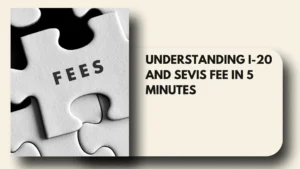- Affordable Canadian universities for finance include UBC (CAD 9,883/₹6.3L), HEC Montréal (CAD 16,750/₹10.7L), and Concordia (CAD 21,350/₹13.6L).
- Finance jobs in Canada salary ranges CAD 70,000-115,000 (₹44.7L-73.5L) annually with quantitative analysts earning highest compensation.
- Canada’s Post-Graduation Work Permit (PGWP) is valid for up to 3 years, allowing international graduates to gain valuable work experience.

For aspiring finance professionals, Canada is a standout choice: the country’s biggest banks posted strong profits in 2025 and are steadily strengthening their balance sheets, which keeps demand high for skilled talent in investment banking, risk, and financial analysis.
Your finance career in Canada could span analyzing multi‑billion‑dollar loan portfolios, managing credit‑loss provisions, and building fintech solutions.
Why Choose Canada for Your Finance Education?
The country’s position as a global financial hub, coupled with its multicultural environment, creates the perfect landscape for finance education excellence.
- World-Class Financial Centers: Toronto hosts the Toronto Stock Exchange (TSX), North America’s third-largest stock exchange, while Quebec’s pension fund management sector generates billions in returns annually.
- High Demand: Canada’s banks are setting aside higher loan loss reserves, creating demand for risk analysts and financial experts who understand both traditional banking and emerging market dynamics.
- Innovation Focus: Canada’s financial sector leads in fintech innovation, with over 1,200 fintech companies calling Canada home, creating demand for graduates who understand both traditional finance and emerging technologies.
- Post-Study Opportunities: International students can apply for a Post-Graduation Work Permit (PGWP) valid for up to 3 years.
Top Universities for Masters in Finance in Canada
Canadian finance programs blend in-depth theory with practical training to prepare graduates for successful finance careers. Many programs are designed to be completed within 10–24 months.
| QS Business Master’s Rankings 2026: Finance | University | Program | Annual Tuition (CAD/INR) |
|---|---|---|---|
| 17 | University of Toronto (Rotman) | Master of Financial Risk Management (MFRM) | CAD 74,650 (₹47.7L) |
| 24 | McGill University (Desautels) | Master of Management in Finance (MMF) | CAD 72,524 (₹46.3L) |
| 101–110 | HEC Montréal | MSc Finance | CAD 16,750 (₹10.7L) |
| 111–120 | University of Alberta (Alberta School of Business) | Master of Financial Management (MFM) | CAD 29,900 (₹19.1L) |
| 131–140 | McMaster University (DeGroote) | Master in Finance | CAD 63,346 (₹40.5L) |
| 131–140 | Concordia University (John Molson) | MSc Finance | CAD 21,350 (₹13.6L) |
| 151–200 | University of Manitoba (Asper) | Master of Finance (MFin) | CAD 37,751 (₹24.1L) |
| 151–200 | Simon Fraser University (Beedie) | MSc Finance | CAD 61,351 (₹39.2L) |
| 201+ | Saint Mary’s University (Sobey) | Master of Finance (MFin) | CAD 48,794 (₹31.2L) |
| Unranked | Western University | Master of Science (Financial Economics) | CAD 29,656 (₹18.9L) |
| Unranked | University of British Columbia | MSc in Business Administration (Finance) | CAD 12,468 (₹7.9L) |
Eligibility Criteria for MS in Finance in Canada
Master’s in Finance courses in Canada seek students with solid quantitative and analytical skills, along with a clear interest in financial markets. Here’s a look at the core eligibility requirements.
Academic Requirements
Undergraduate Degree: Four-year bachelor’s degree in Finance, Business, Economics, Mathematics, Engineering, or related quantitative discipline from a recognized institution.
Academic Performance: Minimum 70-75% marks (equivalent to 7.5 / 10 CGPA)
Education Credential Assessment: International students must obtain a credential evaluation from recognized agencies like WES (World Education Services), ICAS, or ICES to verify their degree equivalency.
15-Year Education Rule: Minimum 15-16 years of formal education (including school + undergraduate studies). Students with 14 years of education may need a relevant PG diploma or certificate program to bridge the gap.
Calculate your academic eligibility precisely using our CGPA Calculator to identify target universities that match your profile and optimize your application strategy.
Standardized Test Requirements
GMAT/GRE: Most top programs expect a GMAT Focus Edition score of 605+ (out of 805), or a GRE score in the range of 315 to 325. However, some universities may waive GMAT/GRE for candidates with an exceptional academic record.
English Language Proficiency (May vary by university):
- IELTS Academic: 7.0 overall (minimum 6.5 in each band)
- TOEFL iBT: 90-100+
- PTE Academic: 65+
- Duolingo English Test: 120+
For IELTS preparation, join our FREE IELTS Bootcamp course, which includes section-wise mock tests, real-time feedback, and guidance from certified instructors.
Top Job Roles, Salaries & Career Scope After Master’s in Finance
Canada’s financial sector offers exceptional growth opportunities across investment banking, corporate finance, risk management, and emerging fintech sectors. The aging workforce in senior finance positions creates accelerated promotion paths for skilled graduates.
| Job Role | Average Annual Salary (CAD / INR) | Top Employers |
|---|---|---|
| Quantitative Analyst | CAD 115,000 (₹73.5L) | Citadel Securities, Two Sigma, Bank of Canada |
| Portfolio Manager | CAD 110,000 (₹70.3L) | Canada Pension Plan Investment Board, Ontario Teachers' Pension Plan, Manulife Investment Management |
| Corporate Finance Manager | CAD 105,000 (₹67.1L) | Shopify, Canadian National Railway, Brookfield Asset Management |
| Investment Banking Analyst | CAD 95,000 (₹60.7L) | Goldman Sachs Canada, JP Morgan, CIBC World Markets |
| Risk Management Specialist | CAD 82,500 (₹52.7L) | Scotiabank, National Bank of Canada, Sun Life Financial |
| Financial Analyst | CAD 70,000 (₹44.7L) | RBC Capital Markets, TD Securities, Bank of Montreal |
Post-Study Work & PR Opportunities in Canada
Canada provides generous post-graduation work permits and multiple pathways to permanent residency. The points-based immigration system favors young, educated professionals with Canadian credentials and work experience.
Work Permit & Immigration Overview
| Visa Category | Who It's For | Duration | Key Requirements | Status |
|---|---|---|---|---|
| Post-Graduation Work Permit (PGWP) | Recent graduates from Canadian institutions | 3 years | • Program of at least 8 months at a designated learning institution • Full-time study status maintained • Language proficiency CLB 7 in all 4 skills | Work Permit - Leads to PR |
| Express Entry - Canadian Experience Class | International graduates with Canadian work experience | Permanent residency in 6-12 months | 1+ years Canadian work experience; Language proficiency (CLB 7+) | Permanent Residency |
| Provincial Nominee Program (PNP) | Graduates meeting specific provincial labor needs | +600 CRS points (virtually guarantees PR) | Match provincial criteria; Job offer preferred; Language requirements vary | Permanent Residency |
Key Takeaways
- Canada’s financial sector is a global leader in fintech innovation, with over 1,200 fintech companies driving the need for tech-savvy finance professionals.
- International students completing a Masters in Finance in Canada can apply for a Post-Graduation Work Permit (PGWP) valid for up to three years.
- Top universities in Canada for finance include Toronto Rotman (QS #17) and McGill Desautels (QS #24).
- Affordable Canadian universities for finance include UBC (CAD 9,883/₹6.3L), HEC Montréal (CAD 16,750/₹10.7L), and Concordia (CAD 21,350/₹13.6L).
- Since top finance programs accept GMAT Focus Edition score of 605+ (out of 805) but may waive them for exceptional academics, focus on maintaining a high CGPA.
- With banks expanding loan loss reserves, position yourself in risk management or quantitative analysis during studies to access CAD 82,500-115,000 (₹52.7L-73.5L) salary ranges.
Canada’s finance sector offers lucrative opportunities with top-tier education and strong career prospects. Transform your ambitions into reality with AdmitX guiding you through every step—from selecting the right program to securing your visa.
Our study-abroad services include:
- University Selection Guidance
- SOP Review
- Study-Abroad Document Templates
- Free IELTS Bootcamp Course
- Scholarship Assistance
- Visa Support Services
And much more!
Book your free study abroad counseling session with our experts today!
FAQs
What are the top universities in Canada for MS Finance?
The top-ranked universities include University of Toronto Rotman (QS #17, CAD 74,650/₹47.7L), McGill University Desautels (QS #24, CAD 72,524/₹46.3L), and HEC Montréal (QS #101-110, CAD 16,750/₹10.7L).
What are the most affordable universities for Masters in Finance in Canada?
The most affordable options with annual tuition are: University of British Columbia (CAD 12,468/₹7.9L), HEC Montréal (CAD 16,750/₹10.7L), and Concordia University (CAD 21,350/₹13.6L).
What are the eligibility requirements for Masters in Finance in Canada?
Students need a four-year bachelor’s degree in Finance, Business, Economics, Mathematics, Engineering, or related quantitative discipline with minimum 70-75% marks (equivalent to 7.5/10 CGPA), plus GMAT Focus Edition score of 605+ (out of 805) or GRE 315-325.
What are the eligibility requirements for Masters in Finance in Canada?
Students need a four-year bachelor’s degree in Finance, Business, Economics, Mathematics, Engineering, or related quantitative discipline with minimum 70-75% marks (equivalent to 7.5/10 CGPA), plus GMAT Focus Edition score of 605+ (out of 805) or GRE 315-325.
For students with a 3-year bachelor’s degree: You’ll need to bridge the educational gap with a Post-Graduate (PG) diploma in a relevant field to meet Canada’s 15-16 year education requirement.
What GMAT score is required for Masters in Finance programs in Canada?
Most top programs expect a GMAT Focus Edition score of 60+5 (out of 805) or GRE score in the 315-325 range, though many universities may waive GMAT/GRE for candidates with exceptional academic records.
What are the career opportunities after Masters in Finance in Canada?
Finance jobs in Canada offer salary ranges from CAD 70,000-115,000 (₹44.7L-73.5L) annually, with quantitative analysts earning the highest compensation at CAD 115,000 (₹73.5L).
What is the salary scope for finance graduates in Canada?
Quantitative Analyst positions offer the highest salaries at CAD 115,000 (₹73.5L), followed by Portfolio Manager at CAD 110,000 (₹70.3L) and Corporate Finance Manager at CAD 105,000 (₹67.1L).
How does the Post-Graduation Work Permit work for Masters in Finance graduates?
International students can apply for a Post-Graduation Work Permit (PGWP) valid for up to 3 years after completing their Masters in Finance program in Canada.
What are the English language requirements for studying finance in Canada?
Requirements typically include IELTS Academic 7.0 overall (minimum 6.5 in each band), TOEFL iBT 90-100+, PTE Academic 65+, or Duolingo English Test 120+.
Why should Indian students choose Canada for Masters in Finance?
Canada hosts major financial centers like Toronto with the Toronto Stock Exchange (TSX), North America’s third-largest stock exchange, and over 1,200 fintech companies, creating excellent opportunities for finance graduates.
What are the permanent residency options after Masters in Finance in Canada?
Graduates can apply through Express Entry Canadian Experience Class (requiring 1+ years Canadian work experience) or Provincial Nominee Program (PNP) which provides +600 CRS points, virtually guaranteeing permanent residency.















